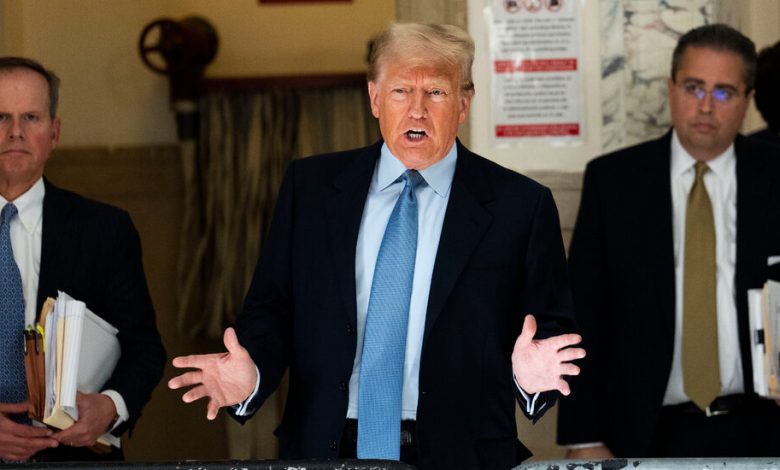What the Civil Fraud Ruling Means for Trump’s Finances and His Empire

Donald J. Trump lost his civil fraud trialon Friday, as a judge found him liable for violating state laws and penalized him nearly $355 million plus interest. In total, Mr. Trump is expected to have to pay more than $450 million.
The judge, Arthur F. Engoron, did not stop there. Along with other punishments, he also barred the former president from leading any company in the state, including portions of Mr. Trump’s family business, for three years. In doing so, he granted requests from the New York attorney general, who brought the case, accusing Mr. Trump of violating state laws by inflating his net worth in documents submitted to lenders.
Mr. Trump will appeal, and the case could take months if not years to resolve.
But Justice Engoron’s decision could inflict immediate pain, threatening the former president’s finances and his influence over the Trump family business, known as the Trump Organization. The threat is not existential — the judge did not dissolve the company, and Mr. Trump is not at risk of bankruptcy — but the decision dealt him a serious financial blow, along with a symbolic swipe at his billionaire image.
The attorney general, Letitia James, said in a news conference Friday evening that “when the powerful break the law and take more than their fair share, there are fewer resources available for working people, small businesses and families.”
She added: “There cannot be different rules for different people in this country, and former presidents are no exception.”
Here’s what we know about how the ruling affects Mr. Trump and his empire:
How will he pay the $450 million?
Mr. Trump has 30 days to come up with the money or secure a bond.
A company providing a bond will essentially assure the State of New York that Mr. Trump has the money to pay the judgments. The bond will prevent authorities from collecting while his appeals are heard.